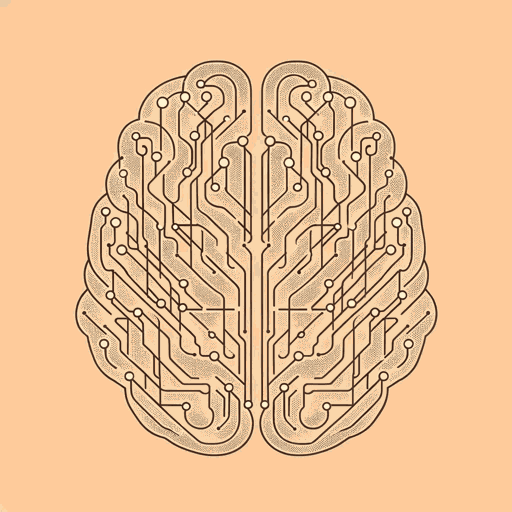48 pages • 1 hour read
Nicholas CarrThe Shallows: What the Internet Is Doing to Our Brains
Nonfiction | Book | Adult | Published in 2010A modern alternative to SparkNotes and CliffsNotes, SuperSummary offers high-quality Study Guides with detailed chapter summaries and analysis of major themes, characters, and more.
Summary and Study Guide
Overview
The Shallows: What the Internet Is Doing to Our Brains (2011) is a nonfiction book by writer, editor, and media critic Nicholas Carr. Carr is a prolific nonfiction writer known for his analysis of cloud computing, artificial intelligence, and human society. A 2011 Pulitzer Prize Finalist, The Shallows combines elements of personal essay, journalism, and academic research to explore The Impact of the Internet on Cognitive Processes, The Nature of Learning and Media in the Digital Age, and The Psychological and Societal Implications of Technology Dependence.
This guide refers to the 2012 W.W. Norton & Company paperback edition.
Summary
The Shallows sets out to describe how the medium of the Internet has impacted human cognition and explore the ramifications of that impact on human development and society at large. In the Prologue and Chapter 1, Carr uses his personal experience with the Internet as a launching point for the book, from his first time using a computer in college, to his blogging and online writing career in the early 2000s, and finally to the changes he noticed in his ability to focus around 2007. After establishing his credibility with the reader as a fellow digital citizen, he spends the rest of the book systematically outlining the history of intellectual technology, the scientific research on learning and memory, and the available academic studies on Internet use and the brain.
Chapter 2 introduces the concept of neuroplasticity, the brain’s ability to change over the course of a person’s life. Carr chronicles the shift among researchers from thinking of the brain as a static organ to understanding it as a plastic one, describing the scientific experiments that led to this discovery. The brain can change with repeated stimulus, but the consequence or outcome of that change is not always positive, as Carr highlights through the example of addiction and other mental disorders. In Chapter 3, Carr introduces intellectual technologies, or tools of the mind, like the clock, the map, the book, and the Internet. Intellectual technologies, by enhancing or expanding mental capabilities, must inherently change the way the brain functions. By way of example, Chapter 4 analyzes the book as an intellectual technology, providing both a history of the book and a scientific summary of how book reading affects cognition. Taken together, Chapters 2-4 argue not only that can the brain change but also that there is documented evidence of how intellectual technologies have changed human cognition in the past.
Chapter 5 covers the history of computing technology and demonstrates how new intellectual technologies displace and devalue those that came before. Chapter 6 considers how electronic, print, and Internet media currently live side-by-side and how they have affected one another. In Chapter 7, Carr describes “the juggler’s brain,” the brain affected by the Internet. The videos, links, and pop-ups embedded in Internet media create cognitive overload because they require a person to make an overwhelming number of micro-decisions and reward constant movement from one thing to the next. Chapter 8 describes how Google’s business model encourages the distracting nature of the Internet, as more clicks leads to more ad revenue. Chapter 9 explains that human memory—integral to learning—is disrupted by Internet media. Learning, the processing of information from working memory to long-term memory, is impeded by the specific kind of cognitive overload the Internet creates in the human brain. Carr argues that this not only challenges the Internet as a tool for learning but also suggests that Internet use may impede long-term learning and cognitive development.
In Chapter 10, Carr uses the example of the computer program ELIZA to show how outsourcing complex human activities—value judgments, empathy—to artificial intelligence is not only ineffective but also potentially harmful, as it may stunt those capacities in people over time. The Epilogue summarizes Carr’s findings: Internet use can affect memory, learning, and complex emotional development. Based on these findings, Carr argues that people should critically examine their Internet use. Carr doesn’t suggest cutting out the Internet, but rather exercising more judgment in which tasks are delegated to computers and actively combatting the cognitive side effects of Internet usage.
The Afterword to the paperback edition details several similar books about the impact of the Internet published around the same time as The Shallows to show that his concerns about dependence on Internet technology are shared with other scholars and writers. Carr reminds the reader that tech companies like Google are institutions that should be critiqued and analyzed, and he encourages the reader to join a countercultural movement against unchecked technology dependence.
Featured Collections
Books & Literature
View Collection
Common Reads: Freshman Year Reading
View Collection
Memory
View Collection
New York Times Best Sellers
View Collection
Philosophy, Logic, & Ethics
View Collection
Popular Study Guides
View Collection
Pulitzer Prize Fiction Awardees &...
View Collection
Science & Nature
View Collection
Sociology
View Collection
The Future
View Collection


